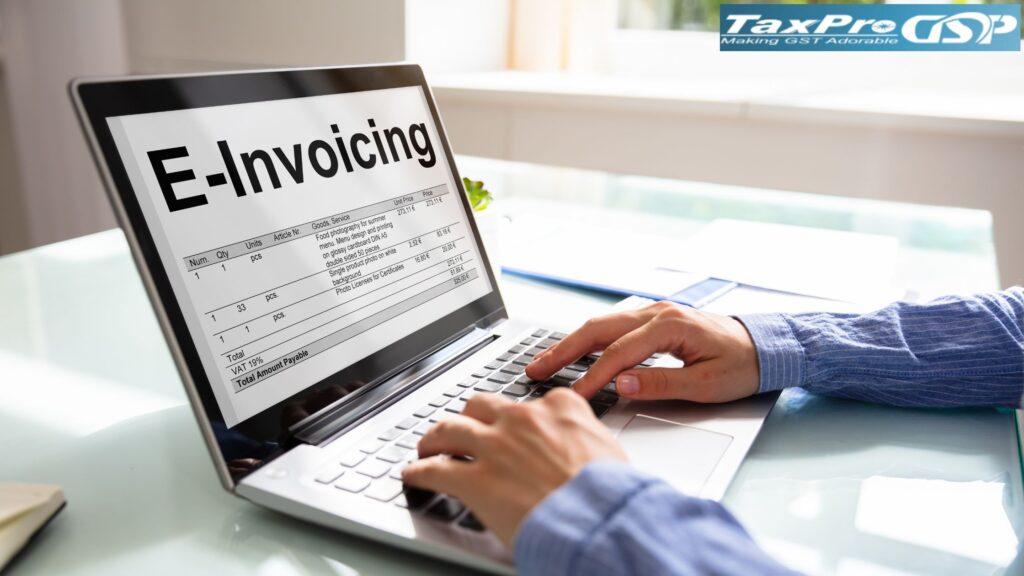It is a fact that the GST eInvoice Portal has become a vital tool for businesses operating in India. This is because the portal helps them ensure compliance with the Goods and Services Tax (GST) regulations while also helping keep the invoice management process smooth.
The GST eInvoice Portal was introduced primarily to improve transparency, minimize tax evasion, and automate the process of invoice reporting. But, it is worth noting that plenty of businesses particularly the ones that newly integrated into the system face challenges and make some preventable errors when generating eInvoices.
Mistakes during eInvoicing can lead to some serious complications. This includes rejection by the GST system, penalties, operational inefficiencies, etc. Knowing what are the mistakes that most businesses make will allow you to prevent them. This will save you a lot of time and resources while ensuring compliance with government regulations. Here are the common mistakes to avoid when using an eInvoice portal.
Incorrect Invoice Data Entry
Another very common mistake that plenty of businesses make when using the GST eInvoice Portal is not entering the correct details in their invoices. Remember that errors in important fields including GST Identification Number (GSTIN), invoice date, and taxable value will result in validation failures which is something you must avoid. This is because eInvoices are directly linked to the GST system. So, even the most minor discrepancies can result in mismatched data, affecting tax filings.
When it comes to avoiding these issues, it is a must for you to use correct and latest data when eInvoicing. Also, you should cross-check the details before submission. The reason behind this is that fixing errors after generating the Invoice Reference Number (IRN) can be a complicated process.
Not Generating the Invoice in the Prescribed Format
As per the GST system, it is mandatory to follow a standardized format based on the JSON (JavaScript Object Notation) schema when it comes to eInvoices. Few businesses make the mistake of generating invoices in formats like PDF, Excel, or Word. It is important to note that such formats are not accepted by the GST eInvoice Portal. When it comes to ensuring compliance with eInvoicing regulations, generate invoices in the prescribed JSON format rather than any other one.
For businesses, it is ideal to make use of a good GST-compliant accounting system due to its benefits. Such systems automatically convert invoices into the required format before submission to the Invoice Registration Portal (IRP). This way, you can avoid the mistake of generating the invoice in the wrong format.
Neglecting the Invoice Cancellation Window
It is important to be aware of the fact that once an eInvoice is generated and validated, businesses have a very tight window of 24 hours to cancel it in case there are errors and they are detected. Once the period is over, it is not possible to cancel the invoice through the GST eInvoice Portal. Instead, you will need to make the required corrections manually in the GST return filing process which is not efficient.
Often, businesses completely overlook the tight window of 24 hours which then results in incorrect invoice records. Such incorrect records have the ability to affect tax calculations and compliance. If you want to completely avoid this error, you should prioritize reviewing every single generated invoice for accuracy and initiate cancellations within the allowed timeframe if required.
Wrapping Up
Thanks to eInvoicing, businesses are able to effectively handle invoicing and ensure tax compliance. However, it is important to pay attention to detail or else there will be complications. Avoid the mistakes mentioned in this blog to streamline your business operations and enjoy the benefits of the GST eInvoice APIs.
Avoid expensive eInvoicing mistakes and streamline your GST compliance with TaxPro GSP. We are a renowned and trusted GST Suvidha Provider (GSP), providing libraries and DLLs to seamlessly integrate GST, eWayBill, and eInvoice APIs into your ERP system. We help businesses minimize manual effort and ensure accuracy.


